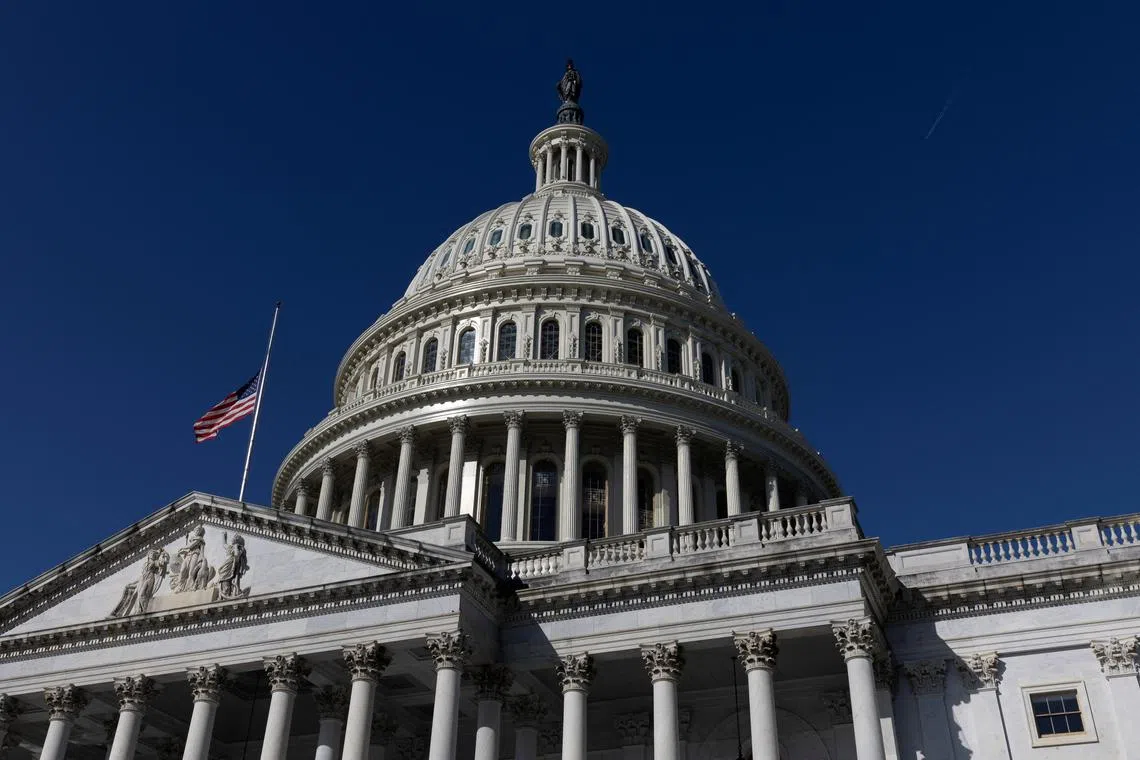US Republicans grill university leaders in latest House anti-Semitism hearing
Sign up now: Get ST's newsletters delivered to your inbox

Many Republican lawmakers criticised universities for not protecting Jewish students.
PHOTO: REUTERS
Follow topic:
WASHINGTON - The leaders of three US universities testified before a House of Representatives panel on July 15 about what they have done to combat anti-Semitism on campus, saying they were committed to stamping out hatred while protecting academic freedom.
At the three-hour hearing, Georgetown University interim president Robert Groves, City University of New York chancellor Felix Matos Rodriguez, and University of California, Berkeley chancellor Richard Lyons came under sharp fire from Republicans.
Many of them echoed President Donald Trump’s recent attacks on universities
“The genesis of this anti-Semitism, this hatred that we’re seeing across our country, is coming from our universities,” said Representative Burgess Owens, a Utah Republican.
It was the latest in a series of hearings about anti-Semitism on campus in which university leaders testified before the House Committee on Education and the Workforce, which is tasked with higher education oversight.
Democrats on the panel used the session to question the Trump administration’s gutting of the Department of Education’s Office for Civil Rights, which probes incidents of anti-Semitism and other forms of discrimination. That has led to a backlog in investigations at a time when Republicans say universities are not doing enough to combat anti-Semitism.
The US Supreme Court on July 14 cleared the way for the administration to resume dismantling the entire department
Representative Mark Takano, a California Democrat, called the hearing a “kangaroo court”.
“This scorched earth warfare against higher education will endanger academic freedom, innovative research and international cooperation for generations to come,” Mr Takano said, referring to the administration’s efforts to cut off funding to some schools, including Harvard and Columbia, and impose other sanctions.
University leaders have come under fire from both pro-Israel and pro-Palestinian communities for their handling of protests that broke out after the 2023 attack on Israel by Hamas militants and conflict that emerged from it. On some campuses, clashes erupted between pro-Palestinian and pro-Israel demonstrators, spawning anti-Semitism and Islamophobic rhetoric and assaults in some cases.
During the hearing, the university leaders were repeatedly asked about their responses to anti-Semitism actions by faculty or affiliated scholars.
Representative Mary Miller, an Illinois Republican, asked Berkeley’s Dr Lyons about a February event in which speakers “repeatedly denied that Israeli women were gang-raped by Hamas terrorists on Oct 7, 2023, and argued that Israel was weaponising feminism”.
Dr Lyons said the online event in question was organised by a faculty member but the comments that Ms Miller cited did not come from the Berkeley faculty member. He said the school anticipated that some of the ideas discussed at the event would prove controversial.
“I did not prevent it from happening because I felt that keeping the marketplace for ideas open was really important in this instance,” he said.
Previous hearings held by the panel have led to significant consequences for university presidents.
In December 2023, Representative Elise Stefanik, a New York Republican, raised her own political profile by grilling the presidents of Harvard, University of Pennsylvania and Massachusetts Institute of Technology.
She asked them whether “calling for the genocide of Jews” would violate their schools’ codes of conduct related to bullying and harassment. Each president declined to give a simple “yes” or “no” answer, noting that a wide range of hateful speech is protected under the US Constitution’s First Amendment and under university policies.
Their testimony, which many viewed as insensitive and detached, triggered an outcry. More than 70 US lawmakers later signed a letter demanding that the governing boards of the three universities remove the presidents. Soon afterwards, Harvard’s Claudine Gay and Penn’s Liz Magill resigned.
Columbia president Minouche Shafik resigned in August, following her April testimony before the committee. REUTERS

